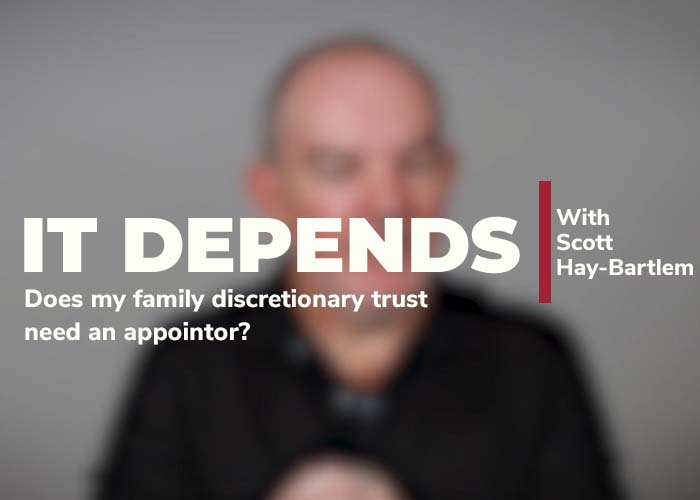In February 2019, the decision of Re Marsella; Marsella v Wareham (No 2) [2019] VSC 65, provided some food for thought for trustees paying death benefits from self-managed superannuation funds (see our original article here).
In that case, the trustee’s decision to pay the death benefit to herself was set aside by the Court, and the trustee was removed as a trustee of the fund.
The trustee appealed this decision, and the appeal judgement was delivered in Wareham v Marsella [2020] VSCA 92 on 20 April 2020.
The appeal was dismissed, and the decision reinforced many of the important lessons from the original judgment in trustees acting properly in making the death benefit payment decision.
What the appeal court said
The decision confirmed that, in making death benefit payment decisions, the trustee of an SMSF must act in good faith, upon a real and genuine consideration and in accordance with the purpose for which the choice was given. The Court confirmed that, in this case, the trustees did not do so.
Real and genuine consideration
In the appeal decision, the Court commented that, although the trustee obtained legal and accounting advice, it was not from a specialist in the superannuation field.
The Court carefully reviewed the trustee minutes and correspondence from the trustee solicitors. The Court commented as follows:
- The fact that the minutes referred to the definition of ‘dependant’ did not mean the trustee understood the definition and it could not be inferred that the trustee had properly considered all dependants.
- Correspondence from the trustee’s solicitor sent after the death benefit decision had been made stated that the estate and the deceased’s husband had no interest in the death benefit payment. This was relevant to determining the likely advice the trustee received before making the death benefit decision.
Conflict of interest
The trust deed, like most, contained a clause allowing the trustee of the fund to enter into conflict transactions. The trustee argued that this clause therefore forgave the conflict that the trustee had in paying the death benefit to herself.
However, the Court said that the provision in the trust deed was not enough to forgive the actual conflict. The personal conflict between the parties and the relationship breakdown meant that the trustee could not have exercised her duties impartially.
Removal as trustee
The trustee argued that, even if the original death benefit decision was to be set aside, the trustee should remain as trustee to re-make the decision.
In considering this, the Court said:
- the trustee’s decision to pay the death benefit to herself was based on a failure to give the decision real and genuine consideration
- there was a risk, even with proper advice, that the trustee would not properly consider all potential beneficiaries.
As a result, her removal as a trustee was justified.
How to properly pay a superannuation death benefit
The court decisions in Re Marsella provide some very useful reminders on what an SMSF trustee must do when exercising their discretion to pay a death benefit.
In particular, it is critical that:
- the trustee obtains specialist advice from a superannuation and trust law specialist
- where the decision maker is also a possible beneficiary, extreme care is taken to ensure that any conflict has been properly dealt with
- all advice provided to the decision maker is clear and consistent with their legal obligations
- all communications (both verbally and in writing) are legally correct and do not contain any wrong information or conclusions (as these can be used against you in a dispute).
Although, it is not the court’s role to assess the fairness or reasonableness of a trustee’s decision, they can use all the circumstances surrounding the decision (rather than just looking at the resolution) to determine if the discretion was properly exercised.
Conclusion
The decision of the Court of Appeal is a reminder that courts will reverse trustee’s decisions and remove trustees if they do not act in accordance with their duties. The outcome in this matter could have been different if:
- the trustee obtained legal advice from a specialist superannuation lawyer before making the death benefit payment decision
- the process adopted (in particular, the wording of their letters) by the trustee and their lawyers had been handled more thoroughly and carefully so as to deal properly with all the issues that could lead to a dispute with the eligible beneficiaries.






